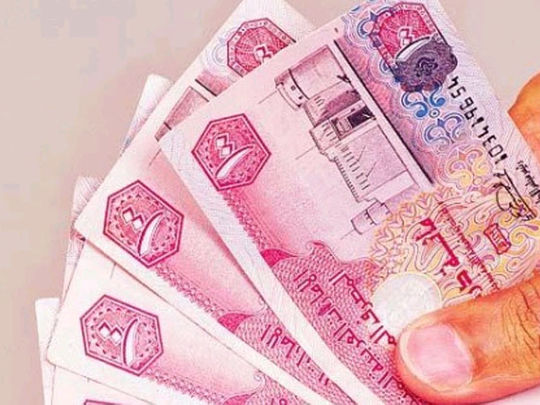
Dubai: The International Monetary Fund (IMF) expects the UAE's economy to grow 3.25 per cent this year although regional events could put additional pressure on corporates.
Despite higher international food prices, CPI inflation is expected to remain moderate at 4 per cent, as rents continue to decline, IMF said.
Taline Koranchelian, head of an IMF delegation that concluded a visit to the UAE on Monday said, non-oil GDP growth is projected to accelerate from 2 per cent in 2010 to 3.25 per cent in 2011, reflecting strong tourism, logistics, and trade in Dubai; and large public investment spending in Abu Dhabi.
“Risks to the recovery remain, including from possible economic spillovers of regional events,” Koranchelian said in a statement following her meeting with key UAE officials including Sultan Bin Saeed Al Mansoori, UAE Minister of Economy, Obaid Humaid Al Tayer, Minister of State for Financial Affairs and Sultan Bin Nasser Al Suwaidi, Governor of the Central Bank.
“For example, the current re-pricing of political and sovereign risks in the region could lead to more challenging market conditions, which may put pressure on the corporate sector, including the Government-Related Enterprises (GREs). The excess supply of property in Dubai and the uncertainty regarding its size will continue to weigh on growth.”
The economic recovery is gaining strength, supported by a favourable global environment but subject to increased regional uncertainty. While overall growth is expected to remain unchanged in 2011 at 3.25 per cent, non-oil GDP growth is projected to accelerate from 2 per cent in 2010 to 3.25 per cent in 2011, reflecting strong tourism, logistics, and trade in Dubai; and large public investment spending in Abu Dhabi, including through GREs, she said.
Higher oil prices are contributing to a marked improvement in the fiscal position and balance of payments.
“The government’s plan to upgrade the infrastructure in the northern Emirates is a step towards more inclusive economic development,” she said.
Replacing the current subsidies on water and electricity with explicit cash transfers to lower-income households should also be considered.
The government intends to launch active labour-market policies to create jobs for nationals.
“Given the concentration of unemployment in the northern Emirates, launching these programs in these regions, while also relocating some of the government agencies/entities in the north, would be important,”she suggested.
The banking sector remains resilient to shocks, she said, citing high capital and strong earnings, although non-performing loans have doubled since the crisis.
The central bank has made important progress in strengthening its financial stability analysis, revamping the regulatory framework, and developing macroprudential policies.
“It should continue to ensure that banks provision adequately, particularly in light of increasing provisioning needs on Dubai GREs. It also needs to monitor the performance of restructured loans and encourage banks to retain more earnings to handle potential risks in the medium term,” she said.
Highlighting the restructuring of the GREs (i.e. Dubai World and Dubai Holding), IMF said, “As the recovery firms up, policies should shift to strengthening the economy’s resilience to future shocks. Dubai’s debt restructuring experience and increased borrowings of GREs in other emirates call for monitoring the risks posed by these entities more closely.
“The ongoing work to complete the restructuring of GREs will help lower borrowing costs. Debt rollover needs will remain substantial throughout the medium term and thus need to be monitored carefully.”
In this context, IMF said, the authorities have already taken some steps towards better debt management practices, and these should now be built upon.












